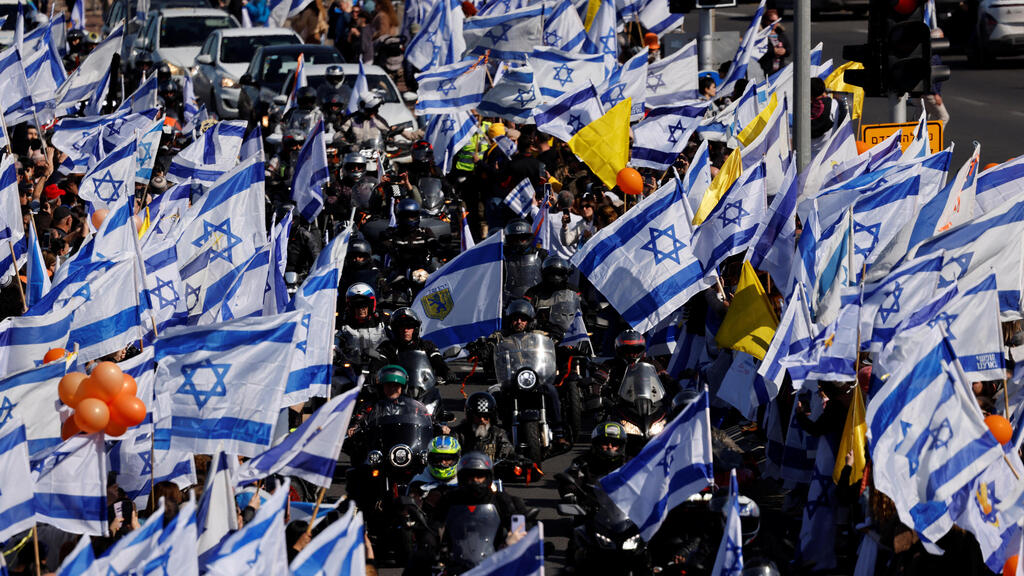On the way to the funeral of the Bibas family, Ofri, the sister of Yarden Bibas, wrote: "Through the window, I see a broken country. We won’t rise, and we won’t recover until the last hostage is home. Thank you to everyone." The pain in her words is understandable. One cannot remain indifferent to the story of Shiri, Ariel, and Kfir, who were murdered while being held hostage in Gaza. Shiri Bibas’ last desperate look, searching for a savior but finding none, symbolizes our helplessness on that day.
But it was precisely the image that emerged during the funeral that proved the opposite. Together with thousands of others, I traveled to accompany the funeral procession, and what I saw there was a nation in pain, but not broken. There was a man wearing tefillin and a tallit, alongside a young secular woman waving the Israeli flag.
On national flags that were raised said "Free in our land," and among them was also a flag with the lion of Jerusalem’s municipality. Along the way, people stopped their cars, stood in silence by the side of the road, near the Rishonim Mall and at city exits. They came from all over the country — families, young and old, religious and secular. There was an elderly woman handing out stickers with hearts to passersby, as if trying to offer a small warmth against the cold of an incomprehensible reality.
The silence was the most striking. No one spoke loudly, no one yelled. People stood patiently, waiting for the procession to pass, and only the flags fluttered in the wind. This was not the sight of a broken country, but of a people that remembers, a people mourning together, a people refusing to let grief turn to oblivion.
Get the Ynetnews app on your smartphone: Google Play: https://bit.ly/4eJ37pE | Apple App Store: https://bit.ly/3ZL7iNv
The Bibas family is just part of the tragedy. In the massacre of October 7, 38 children were murdered. Three of them were babies, and four others were between the ages of 3 and 6. Twenty children were orphaned by the death of both parents, and 96 children lost one parent. This is a national catastrophe, and its consequences will impact Israeli society for generations to come.
2 View gallery


IDF troops salute the Bibas family on their finaly journey
(Photo: AP/Ohad Zwigenberg)
The pain is unbearable, and the loss is immense. But when the last hostage returns home, we will not return to the country that was here before October 7. We will be a different nation — a nation that understands the magnitude of the evil around it, but also the internal strength within it.
We are not broken. We are wounded, we are in pain, but we are fighting.


